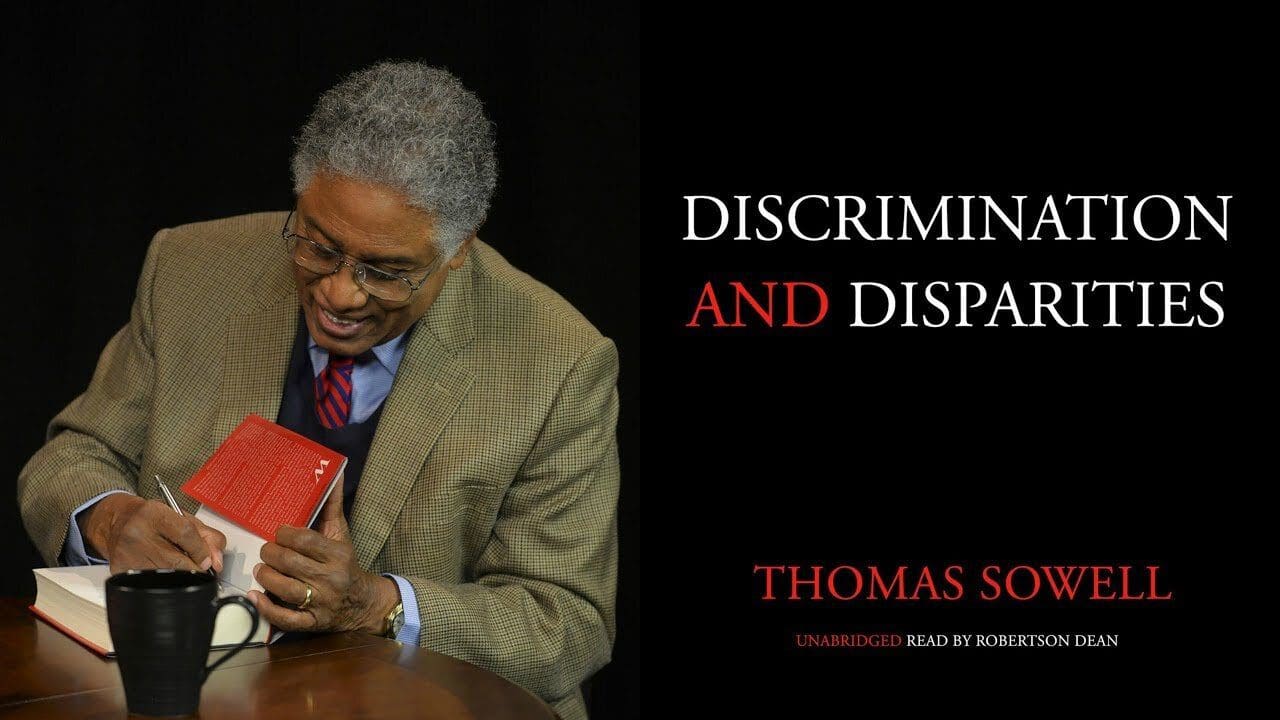One of Thomas Sowell’s latest books, Discrimination and Disparities became available in Hungarian earlier this year when it was published by MCC Press. The book gives an unconventional account of one of America’s greatest challenges – racial inequalities. Unlike most recent explanations of racial disparities, Thomas Sowell does not believe that inequalities between people of different colour can be explained by one single factor – discrimination. In his book he demonstrates the complexity of economic inequalities, and argues that the discrimination against blacks by the white population and the legacy of slavery are unsatisfactory explanations for the economic inequalities between the white and the African American populations of the US today.
The writer, Thomas Sowell is a decorated and well-known American economist and social scientist. He was born in 1930 into an impoverished black American family in Gastonia, North Carolina. After his family moved to the North, he grew up in Harlem, New York City. Due to his family’s deprivation, he dropped out of high school and joined the military. After finishing service, he attended night classes and worked his way into Harvard – he graduated magna cum laude in 1958. From Harvard, he moved on to study economics first at Columbia University and then at the University of Chicago, from the most distinguished economic thinkers of the time, obtaining a master’s and then a doctoral degree.
He has dedicated most of his career to understanding the sources and impacts of racial inequalities in America
His libertarian ideas first received national attention during the Reagan administration, and since the 1980s, he has been an influential thinker in the United States, especially in Republican circles. As an African American he has dedicated most of his career to understanding the sources and impacts of racial inequalities in America. Currently, Thomas Sowell is a senior fellow at the Hoover Institution of Stanford University. Although he is over 92 years old now, he is still active – Discrimination and Disparities first appeared in 2018, and a year later it was republished in a revised and enlarged edition (the Hungarian translation is based on the 2019 publication).
Discrimination and Disparities questions the tenet that discrimination is the most fundamental source of racial disparities. He argues that racial inequalities are usually explained by two opposing, and extreme explanations – on the one extreme, the genetic differences (in terms of inferiority or superiority) of the various racial groups are brought up, while on the other extreme discrimination is identified as the ultimate cause of all inequalities. The first extreme, he argues, characterised the 1930s and the 1940s, when the advocates of eugenics and Nazis believed that genetic differences between racial groups fully determine their success. While today most people reject such extreme ideas, Sowell argues, American society, and especially academics, are falling into another extreme – attributing racial disparities to discrimination by the majority population. Whenever a minority racial group underperforms the dominant (i.e., white) racial group, the difference in outcomes is explained with the negative discrimination of the minority group. Sowell, on the other hand, argues that there are alternative explanations.
One of his most elaborated challenges to the discrimination-based narrative is that it is unable to explain why 1. some minorities (e.g., Jews) can succeed despite explicit discrimination, and 2. some minorities’ (e.g., African Americans’) situation deteriorated after discrimination decreased. He argues that the life of black Americans was getting gradually better until the 1960s, when the rapid improvement in their economic situation slowed down, or in some cases even worsened. He brings up the increase in violence, in gang activities and in murder rates among African Americans compared to the 1960’s as examples. Sowell argues that discrimination-based inequality explanations are unable to provide a satisfactory account of why the situation of parts of the black American population deteriorated after discrimination eased.
From early childhood, the choices of our parents and then our choices later in life as adults all impact our achievements
As an alternative to the discrimination-based explanation for inequalities, he cites multiple other factors that influence the economic success of racial groups in the US. The number of words that children hear and the encouraging or discouraging messages that they receive from their parents in their early childhood all impact individuals’ language speaking abilities and therefore, their chances in life. From their household conditions (single parent household or not) and the safety of their neighbourhoods to the negative or encouraging attitude of their peers and their educational attainment – all impact individuals’ success in life. From early childhood, the choices of our parents and then our choices later in life as adults all impact our achievements, Sowell underscores, highlighting the responsibility of individuals in shaping their own lives. Therefore, there is no reason to assume that all could achieve the same outcomes; and by the same token, that two groups should achieve exactly the same outcomes.
In the book he enlists rich evidence of the multitude of factors that all impact the differences between racial groups in America – else then discrimination. Thereby, he argues, in order to solve the problems of black Americans much more is needed then the so-called dismantling of some alleged ‘institutional racism’. The notion that no single factor can be an all-encompassing explanation for societal problems is the most important message of the book. Blaming one factor (be it genes or discrimination) is no answer to why inequalities persist over time between racial groups. In his scholarly but engaging book Thomas Sowell reminds us of the complexity of life and the need for intellectual honesty to recognize the multitude of factors which may influence economic outcomes.








